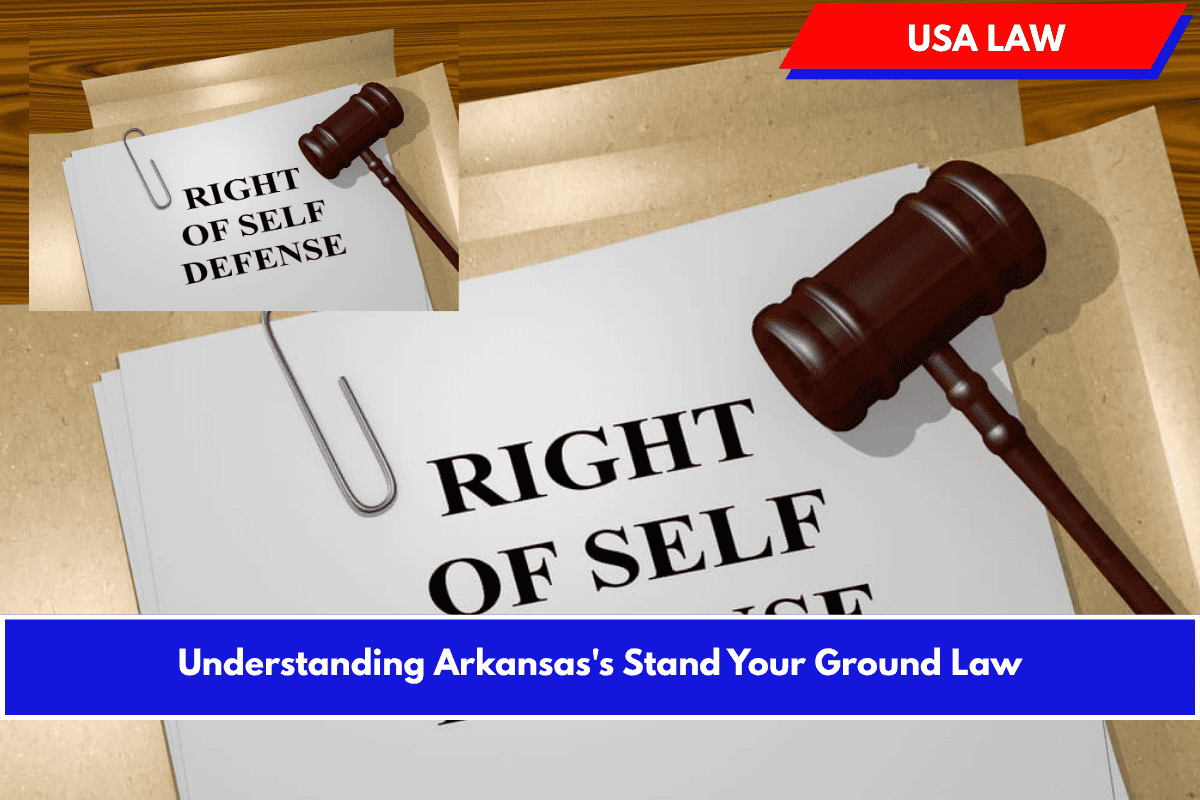Arkansas adopted a “Stand Your Ground” law in 2021, fundamentally changing how self-defense is treated in the state. Previously, Arkansas followed a “duty to retreat” principle, which required individuals to attempt to avoid conflict by retreating if safely possible before using deadly force. The new law removes this requirement in most situations.
Key Provisions of Arkansas’s Stand Your Ground Law
- No Duty to Retreat: Individuals are no longer required to retreat before using force, including deadly force, if they are lawfully present at the location and are not engaged in criminal activity.
- Reasonable Belief of Threat: Deadly force is only justified if the person reasonably believes they are facing imminent danger of death, serious bodily harm, or a forcible felony.
- Location: The law applies anywhere a person is lawfully present, not just in their home or property. This includes public spaces as well as private property.
- Not the Initial Aggressor: The person claiming self-defense must not have been the initial aggressor in the confrontation.
- Proportionality: The response must be proportional to the threat. Using deadly force in response to a non-lethal threat may not be justified.
- Exclusions: The law does not protect individuals who are felons, engaged in criminal activity, or who provoke the confrontation.
Castle Doctrine vs. Stand Your Ground
While Arkansas does not have a formal “Castle Doctrine” statute, individuals can still defend themselves in their homes under the same proportionality and immediacy standards that apply elsewhere. The main difference is that the Stand Your Ground law extends the right to use force without retreating to all places where a person is lawfully present, not just the home.
Important Considerations
- Verbal Threats: Deadly force cannot be used in response to verbal threats alone; the threat must be immediate and physical.
- After the Threat Ends: Once the immediate danger has passed, continuing to use force can turn a self-defense claim into an act of aggression.
- Legal Consequences: Each case is scrutinized by courts to determine whether the use of force was justified, focusing on the immediacy and proportionality of the response.
Arkansas Stand Your Ground Law
| Provision | Details |
|---|---|
| Duty to Retreat | No duty to retreat if lawfully present and not engaged in crime |
| Justification | Reasonable belief of imminent danger or forcible felony |
| Location | Applies anywhere person is lawfully present |
| Initial Aggressor | Law does not protect initial aggressors |
| Proportionality | Force used must match the threat |
| Verbal Threats | Not sufficient to justify deadly force |
| Application in Home | Same standards apply as in public; no formal Castle Doctrine |
Arkansas’s Stand Your Ground law allows individuals to protect themselves without retreating, provided they are not the aggressor, are lawfully present, and reasonably believe they face imminent serious harm. However, the law still requires that the use of force be reasonable and proportional to the threat, and does not shield those who provoke violence or use excessive force
Sources
- https://giffords.org/lawcenter/state-laws/stand-your-ground-in-arkansas/
- https://en.wikipedia.org/wiki/Stand-your-ground_law
- https://www.lemley-law.com/blog/arkansas-gun-laws/
- https://bobbydigbylaw.com/self-defense-laws-in-arkansas-exploring-the-boundaries-beyond-stand-your-ground/
- https://katv.com/news/local/arkansas-governor-signs-controversial-stand-your-ground-bill-into-law











